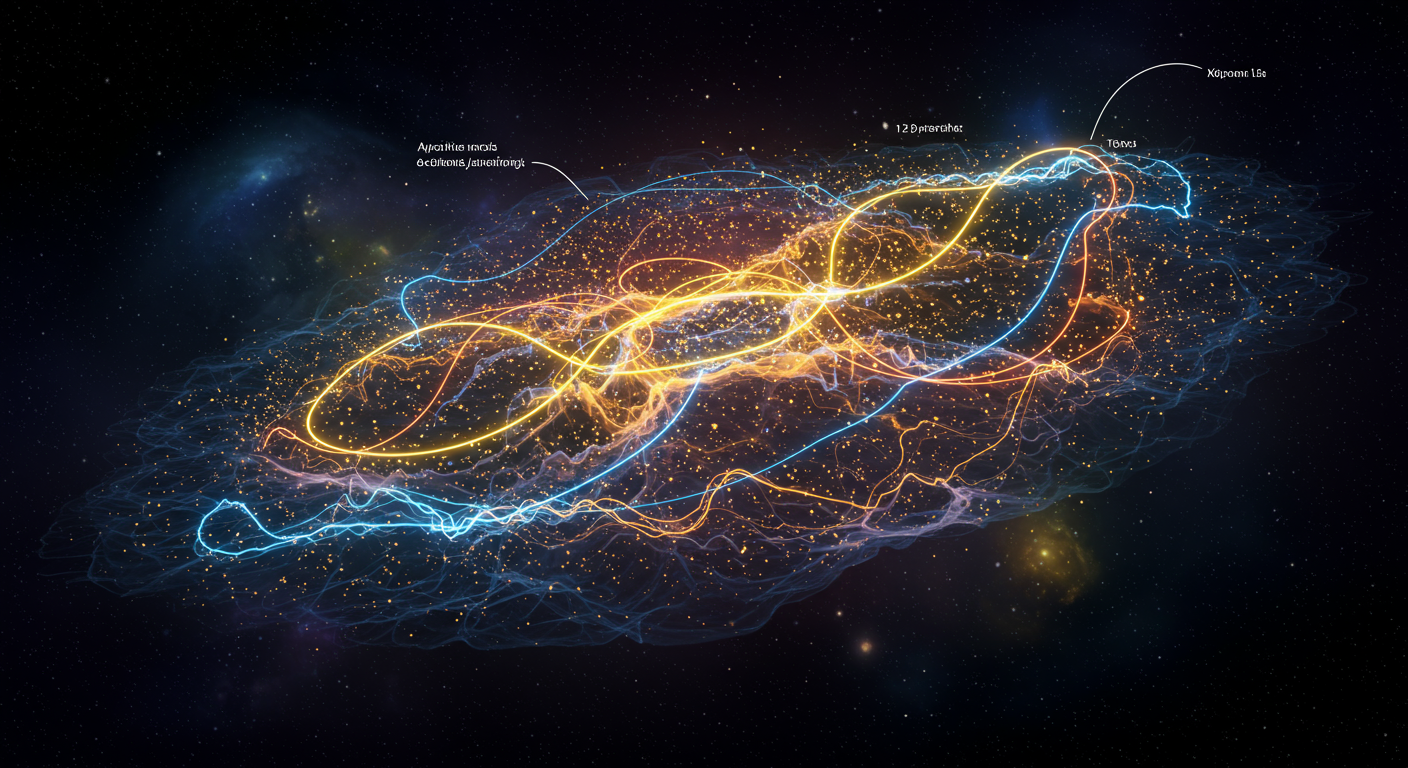A comparison of Bayesian sampling algorithms for high-dimensional particle physics and cosmology applications

In a comprehensive new study, 2409.18464, lead author Joshua Albert, alongside our own Will Handley and collaborators, provides a detailed comparison of Bayesian sampling algorithms for high-dimensional applications in particle physics and cosmology. This work offers crucial insights for researchers navigating the complex landscape of statistical inference, where the choice of algorithm can dramatically impact both the accuracy and efficiency of scientific discovery.
The Challenge of High-Dimensional Inference
Modern physics, from unraveling the mysteries of the early Universe to searching for new particles at the LHC, increasingly relies on confronting complex theoretical models with vast datasets. Bayesian inference provides a powerful framework for this, but exploring the resulting high-dimensional and often multimodal posterior probability distributions is a significant computational challenge. For decades, the field has largely been divided between two families of algorithms: Markov Chain Monte Carlo (MCMC) methods, prized for their efficiency in parameter estimation, and Nested Sampling (NS), the gold standard for calculating the Bayesian evidence and exploring multimodal posteriors, albeit at a higher computational cost.
A Rigorous Comparison
This paper systematically evaluates a wide array of both MCMC and NS samplers to determine their relative strengths and weaknesses. The authors employ a suite of challenging test cases designed to mimic the pathologies frequently encountered in real-world physics problems:
- Analytic Test Functions: Problems like the ‘Eggbox’ and ‘Rastrigin’ functions test the ability to handle extreme multimodality, while the ‘Rosenbrock’ function probes performance on curving degeneracies, and the ‘Spike-slab’ function examines how algorithms manage modes of vastly different posterior mass.
- Realistic Physics Scenarios: The study grounds these tests in two practical examples: a global fit of the standard $\Lambda$CDM cosmological model to Planck data, and a highly complex fit of the Minimal Supersymmetric Standard Model (MSSM) using a combination of collider and astrophysical constraints.
Key Findings and Practical Guidance
The results challenge some long-held assumptions and provide a practical guide for practitioners.
-
The Rise of Modern MCMC: Perhaps the most significant finding is that modern MCMC algorithms are no longer confined to simple, unimodal problems. Techniques like parallel tempering MCMC (
ptemcee) and the novelMCMC-diffusionmethod (2309.01454) demonstrate remarkable efficiency and accuracy on multimodal posteriors, in some cases outperforming their NS counterparts. This suggests that the efficiency of MCMC can now be brought to bear on a wider class of problems previously considered the exclusive domain of nested sampling. -
A Nuanced Landscape for Nested Sampling: The study reveals that there is no single ‘best’ NS algorithm. Instead, different implementations are suited for different challenges. For instance, our group’s own
PolyChord(1506.00171) excels at problems with distinct, separable modes of varying importance, like the spike-slab function. In contrast, other samplers may be more adept at navigating a large number of similar modes. -
Lessons from Physics Applications: The $\Lambda$CDM analysis confirms that for well-behaved, unimodal posteriors, most modern samplers perform reliably. The far more complex MSSM fit, however, highlights the critical importance of algorithmic efficiency. In this high-stakes scenario, where each likelihood evaluation is computationally expensive, samplers like
Nautilusandptemceeemerged as top performers.
This work, which serves as a Bayesian counterpart to the group’s previous comparison of frequentist optimisation algorithms (2101.04525), provides an invaluable resource for the physics community. By systematically benchmarking a diverse set of tools, the authors offer clear, evidence-based guidance for selecting the most appropriate sampler for a given scientific problem. The conclusion is clear: the landscape of Bayesian computation is rapidly evolving, and modern MCMC methods are now powerful contenders for tackling some of the most challenging inference problems in physics.

Content generated by gemini-2.5-pro using this prompt.
Image generated by imagen-3.0-generate-002 using this prompt.